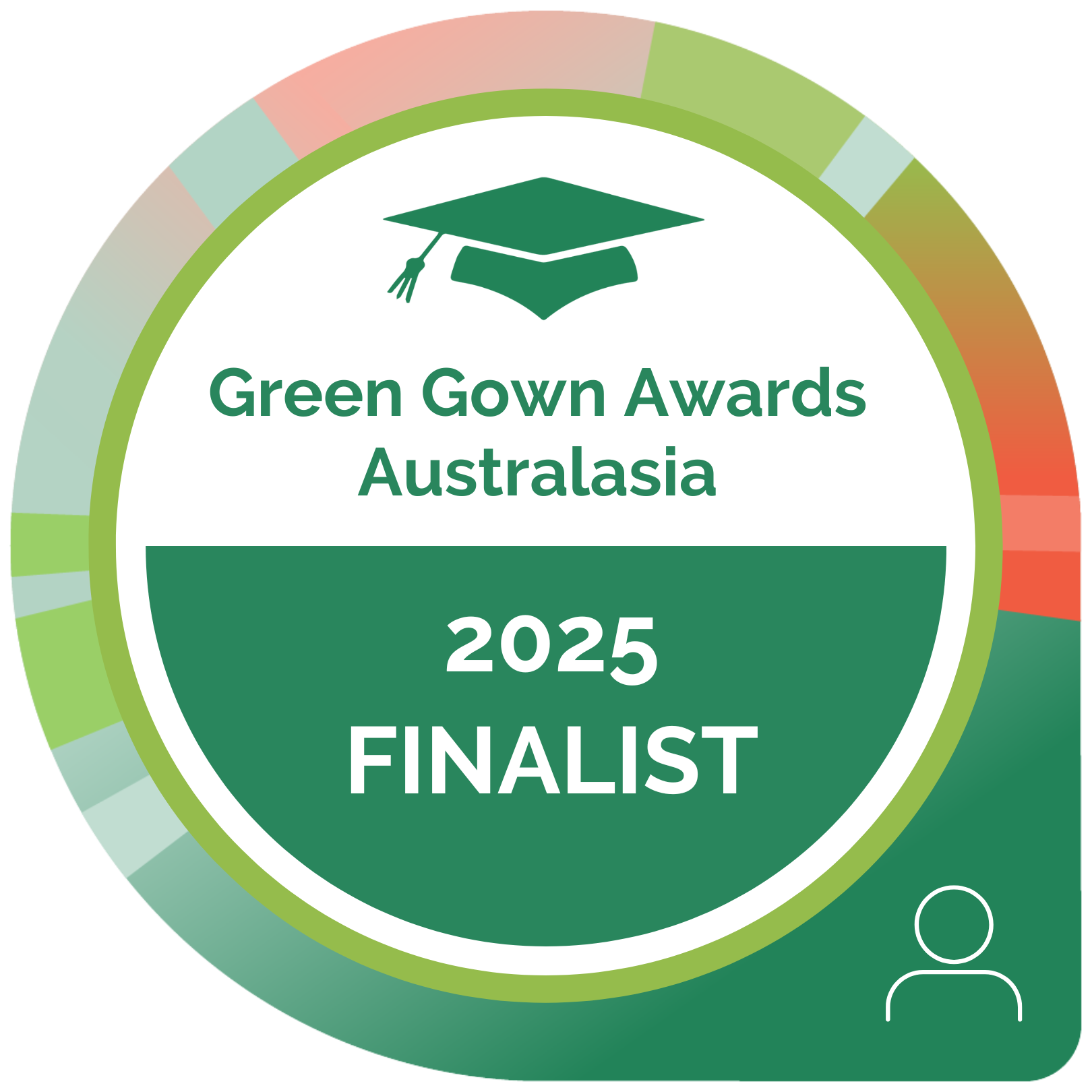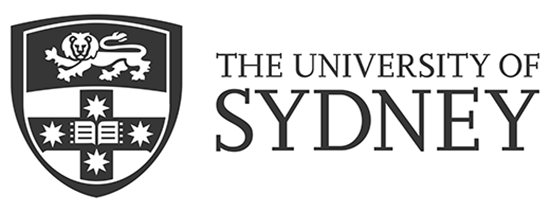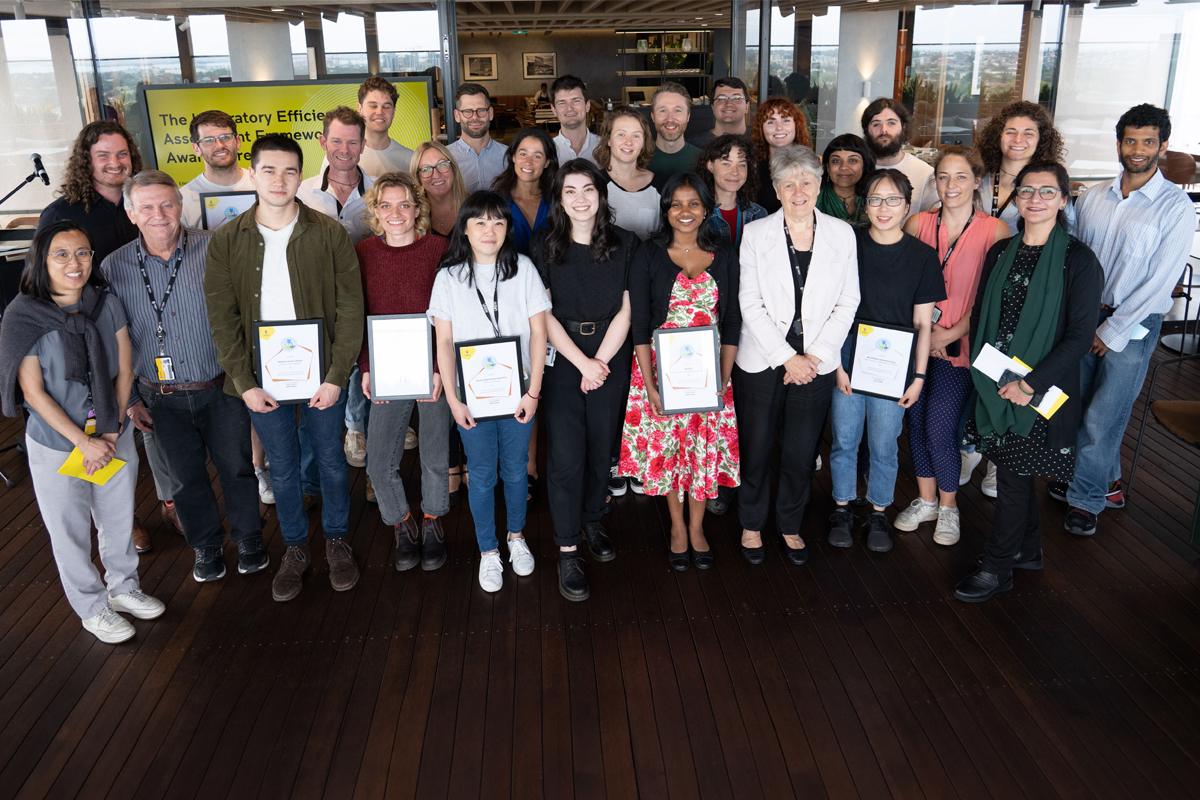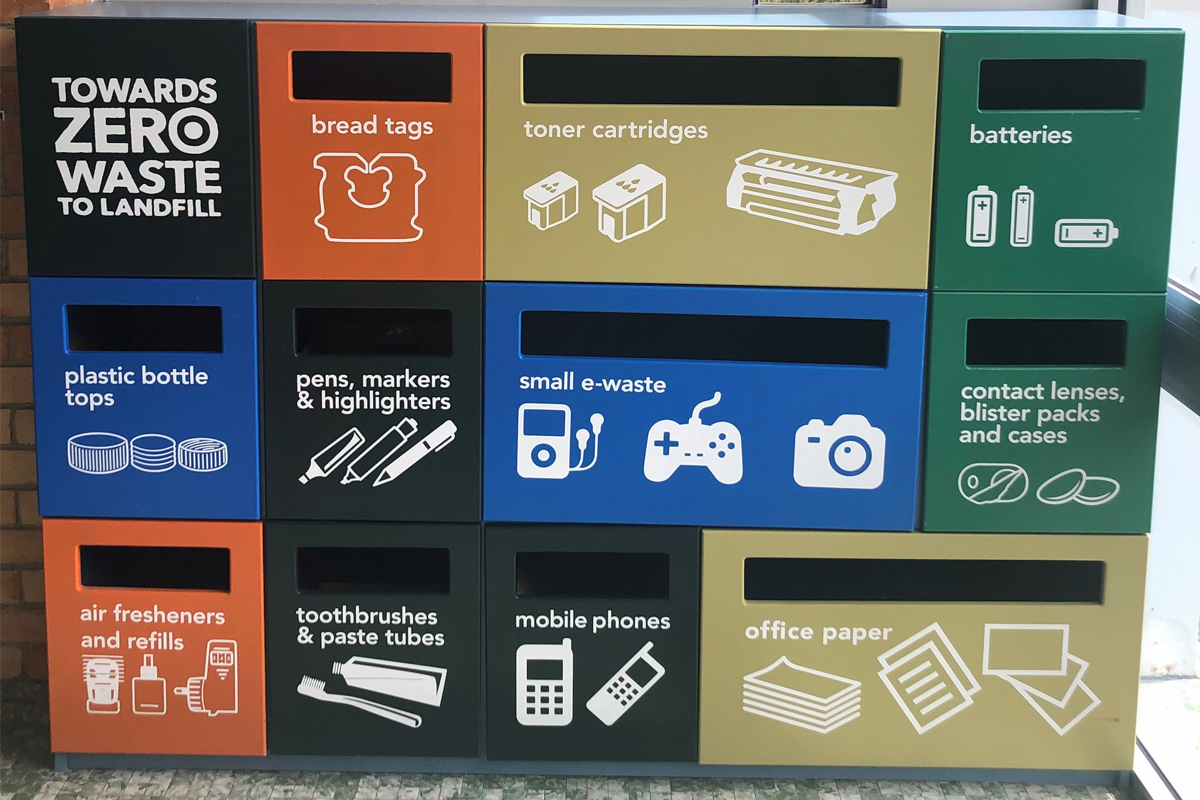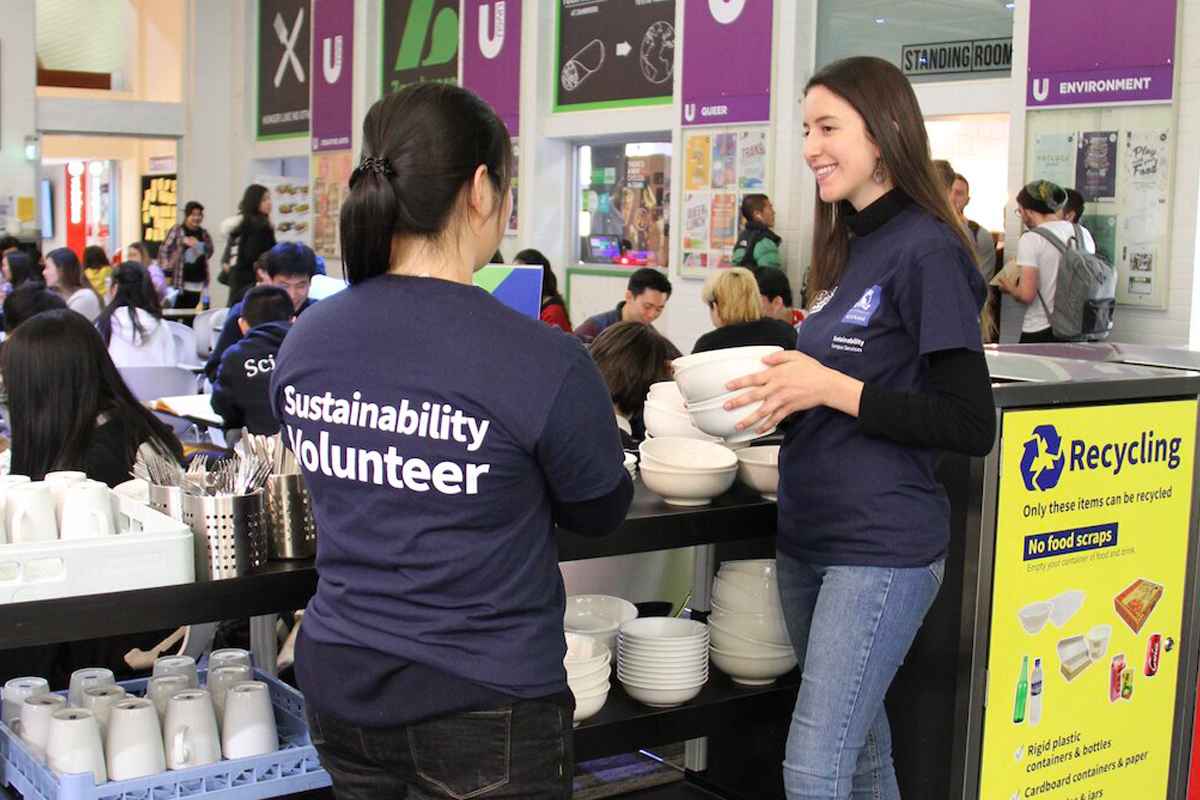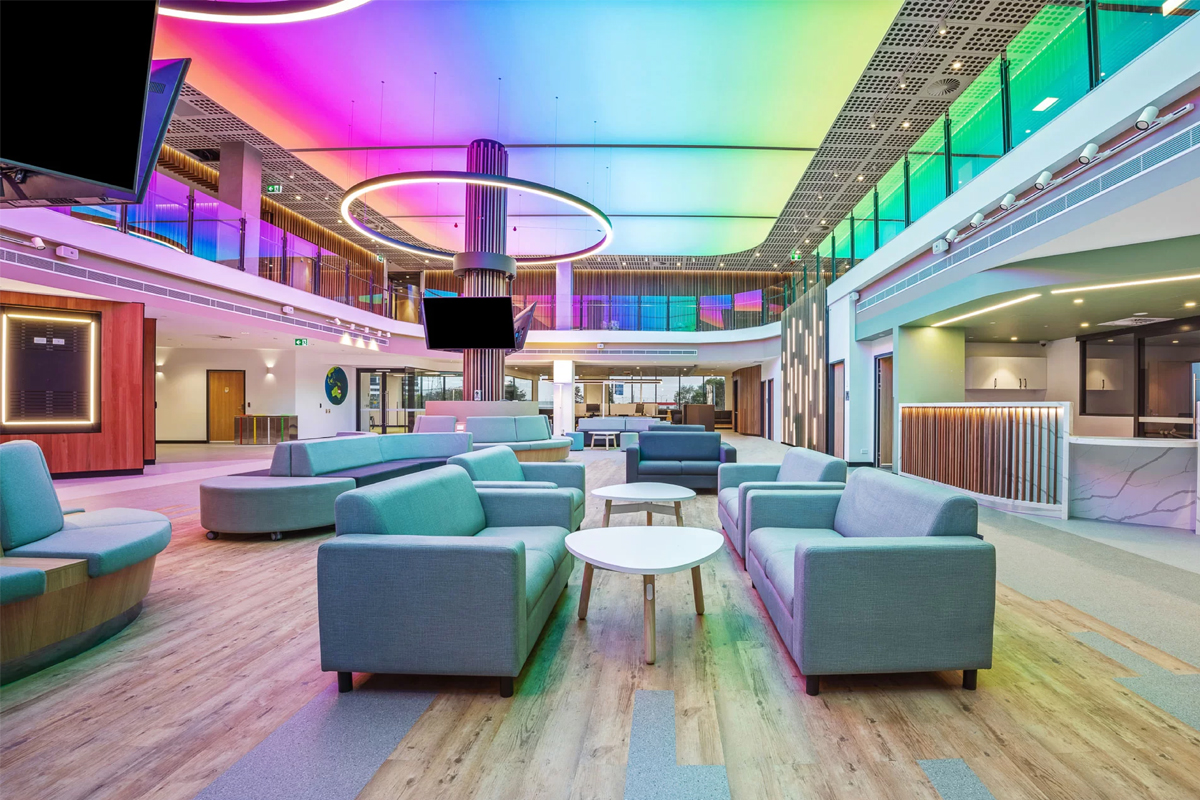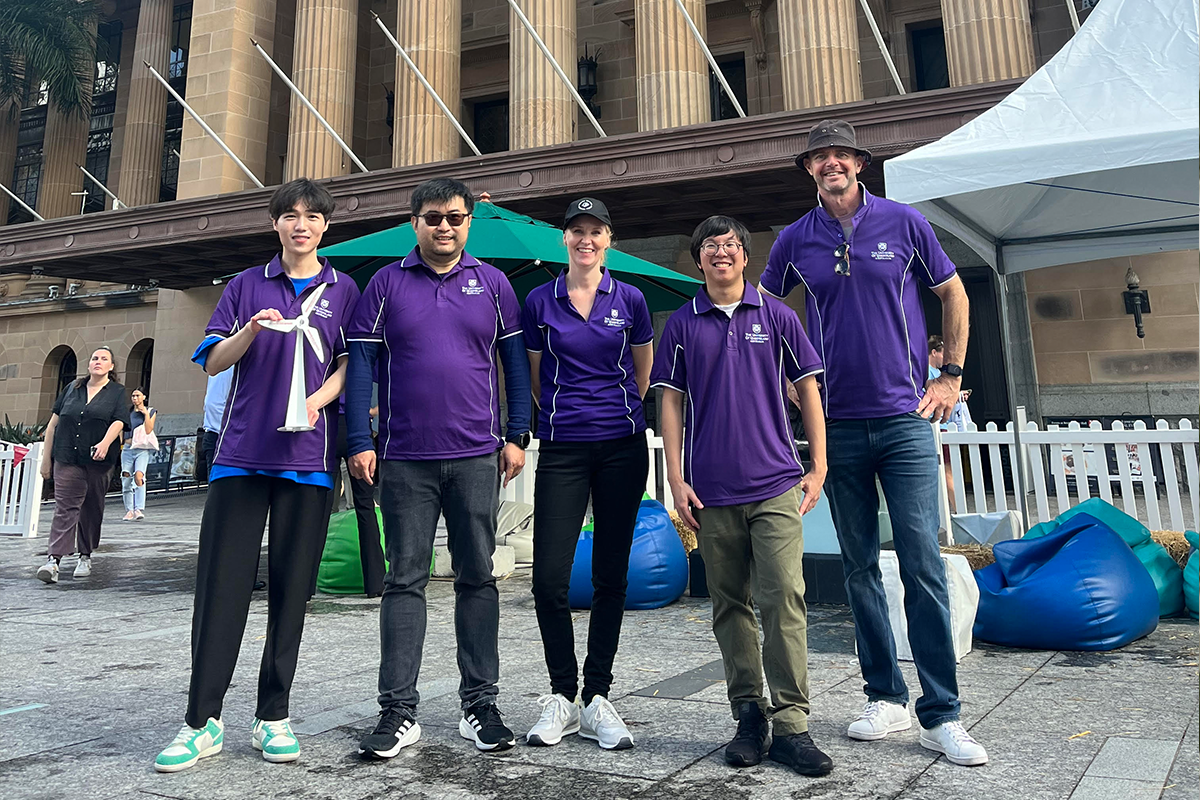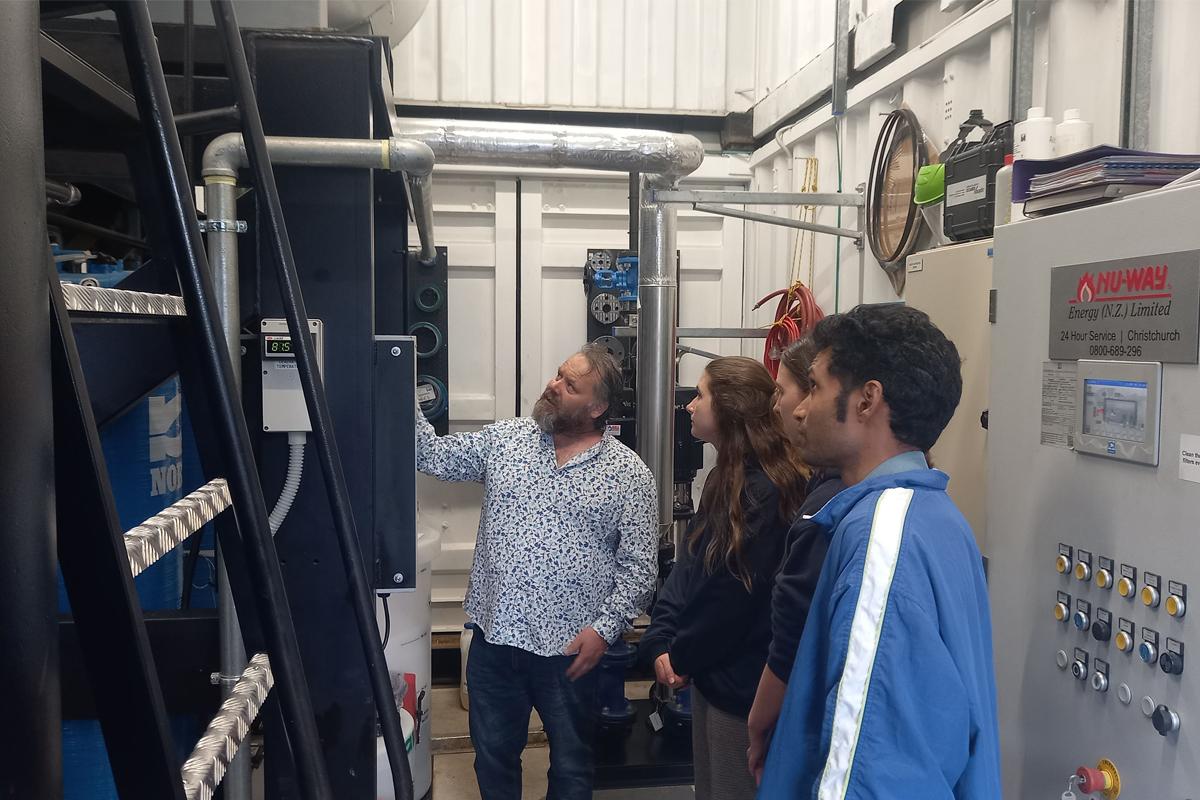Student Champion category
Oscar Mower, a final-year commerce and engineering student, has developed a groundbreaking AI model that can detect North Pacific minke whale vocalisations with over 95% accuracy. Created during a six-month industry placement with Accenture, the tool uses real-time acoustic data to identify whales—helping to guide marine conservation decisions such as dynamic shipping lane management and noise reduction strategies. Backed by cross-sector collaboration and national media coverage, Oscar’s project demonstrates the power of student-led innovation to deliver real-world environmental impact through interdisciplinary thinking and applied technology.

Photo shoot with Oscar Mower at North Head National Park. AI tool created by 22-year-old student tracks elusive minke whales to bolster their protection
Impacts and Benefits
- Created a machine learning model achieving 95.1% accuracy in detecting minke whale vocalisations.
- Provides a scalable, non-invasive conservation tool with applications in noise mitigation, vessel strike reduction, and protected area planning.
- Addresses data gaps in whale migration, supporting stronger, evidence-based conservation policies.
- Raised awareness of minke whale threats through national media, with over 5.56 million audience reach in under two weeks.
Leadership and Engagement
- Collaborated with Accenture, NOAA Fisheries, the Australian Antarctic Program, and the Sydney Institute of Marine Science.
- Led the end-to-end development of the AI tool—from data cleaning and model training to public outreach.
- Showcased how undergraduate students can bridge academic theory with practical conservation impact.
- Created a model for interdisciplinary co-design between students, scientists, engineers, and industry.
Wider Societal Impact
- Helps protect a vulnerable whale species from threats like vessel strikes and acoustic disturbance.
- Supports broader marine planning through data-informed conservation tools.
- Demonstrates the value of university-industry partnerships in solving global sustainability challenges.
- Positions machine learning as a powerful, purpose-driven tool for environmental protection and policy innovation.
Supported by

Related finalists
Student Champion
Student Champion
Student Champion
Student Champion
Student Champion/Winner
Student Champion/Winner
Past Winners
Creating Impact/Winners
Creating Impact/Winners
Leading the Circular Economy/Winners
Leading the Circular Economy/Winners
Leading the Circular Economy/Winners
Leading the Circular Economy/Winners
Next Generation Learning & Skills/Winners
Next Generation Learning & Skills/Winners
Next Generation Learning & Skills/Winners
Next Generation Learning & Skills/Winners
Next Generation Learning & Skills/Winners
Next Generation Learning & Skills/Winners
Oscar Mower, a final-year commerce and engineering student, has developed a groundbreaking AI model that can detect North Pacific minke whale vocalisations with over 95% accuracy. Created during a six-month industry placement with Accenture, the tool uses real-time acoustic data to identify whales—helping to guide marine conservation decisions such as dynamic shipping lane management and noise reduction strategies. Backed by cross-sector collaboration and national media coverage, Oscar’s project demonstrates the power of student-led innovation to deliver real-world environmental impact through interdisciplinary thinking and applied technology.

Photo shoot with Oscar Mower at North Head National Park. AI tool created by 22-year-old student tracks elusive minke whales to bolster their protection
Impacts and Benefits
- Created a machine learning model achieving 95.1% accuracy in detecting minke whale vocalisations.
- Provides a scalable, non-invasive conservation tool with applications in noise mitigation, vessel strike reduction, and protected area planning.
- Addresses data gaps in whale migration, supporting stronger, evidence-based conservation policies.
- Raised awareness of minke whale threats through national media, with over 5.56 million audience reach in under two weeks.
Leadership and Engagement
- Collaborated with Accenture, NOAA Fisheries, the Australian Antarctic Program, and the Sydney Institute of Marine Science.
- Led the end-to-end development of the AI tool—from data cleaning and model training to public outreach.
- Showcased how undergraduate students can bridge academic theory with practical conservation impact.
- Created a model for interdisciplinary co-design between students, scientists, engineers, and industry.
Wider Societal Impact
- Helps protect a vulnerable whale species from threats like vessel strikes and acoustic disturbance.
- Supports broader marine planning through data-informed conservation tools.
- Demonstrates the value of university-industry partnerships in solving global sustainability challenges.
- Positions machine learning as a powerful, purpose-driven tool for environmental protection and policy innovation.
Supported by

Other finalists
Creating Impact
Creating Impact
Sustainability Champion – Staff/Winners
Sustainability Champion – Staff/Winners
Sustainability Champion – Student
Sustainability Champion – Student

